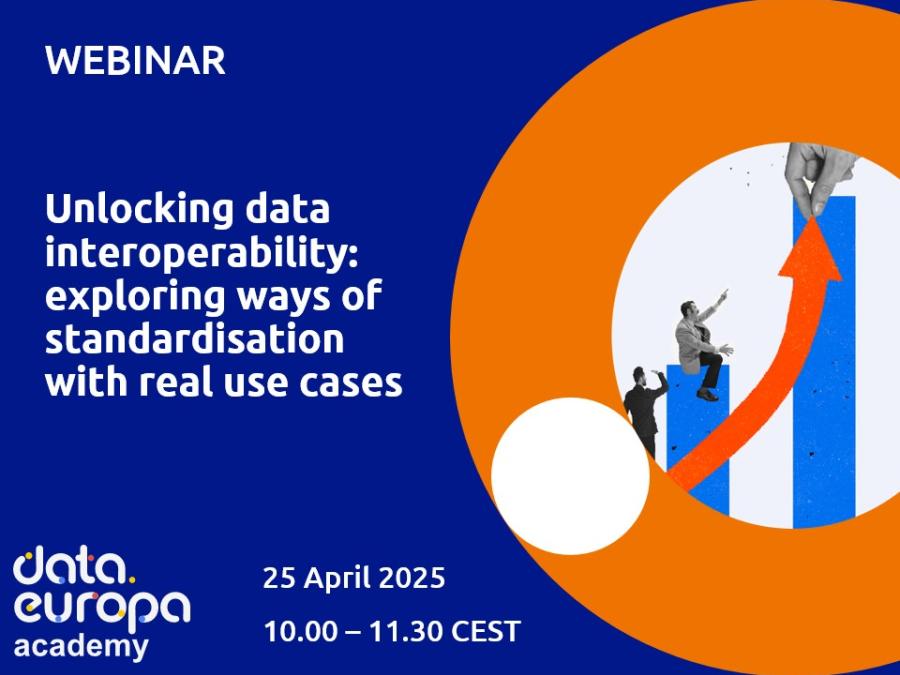L-Iżvizzera
Blogs minn: L-Iżvizzera
Skip results of view Country Insight Blogs
Bħalissa m’hemm l-ebda artiklu tal-Blog
Use cases in: L-Iżvizzera
Skip results of view Use cases
MeteoStats is a product of the Swiss Federal Office of Meteorology and Climatology and contains data from as early as 1880 onwards. An example of a MeteoStats initiative is MeteoSwiss, a service that provides visualisation of various types of weather and climate data. The website shows historical trends for measures like temperature and the various types of precipitation.
MeteoStats is a product of the Swiss Federal Office of Meteorology and Climatology and contains data from as early as 1880 onwards. An example of a MeteoStats initiative is MeteoSwiss, a service that provides visualisation of various types of weather and climate data. The website shows historical trends for measures like temperature and the various types of precipitation.
Geo.admin.ch is the geographical information platform of the Swiss Confederation within the Federal Administration. As a user, you can directly access federal geographical information, data, services, etc.
Rapporti fi: L-Iżvizzera
Skip results of view Dokumentazzjoni

Study
Data sharing as a service: will data services remove intellectual property rights from the picture, and at what cost?

Download
Avvenimenti ta’ Data Miftuħa fi: L-Iżvizzera

Register now for our upcoming webinar, ‘ Unlocking data interoperability: exploring ways of standardisation with real use cases ’, on Friday, 25 April 2025, from 10:00 to 11:30 CEST. Join...
Open Data News in: L-Iżvizzera
Skip results of view L-Aħħar Aħbarijiet tad-Data Miftuħa





As the Swiss public administration’s central portal, opendata.swiss contributes to Switzerland’s commitment to open data by providing access to more than 11 000 datasets, supplied by 140 different organisations. The data stems from the Confederation, cantons, communes and is a record of third-party data that is relevant for the public interest. The Swiss platform has several goals as they strive to facilitate an exchange of information on Open Government Data (OGD) between data providers and data users, create an environment promoting the use of public data, and support the infrastructure for

On Friday 16 February 2024, from 10.00 to 11.30 CET, the data.europa academy hosted the webinar ‘Open data maturity 2023: best practices across Europe‘ which highlighted Slovakia's and Serbia's accomplishments in the field of open data. With nearly 600 registrants, the event underscored the growing interest and commitment to open data across the continent. An expert from data.europa.eu initiated the session by presenting the ODM results , setting the stage for in-depth country analyses. Following this introduction, the narrative shifted to Serbia . In just two years, Serbia demonstrated

On 1 March 2024 , from 10:00 to 11:00 CET , our webinar on "New b usiness m odels for d ata- d riven s ervices" is set to provide fresh insights into the utilisation of open data. Th e event, building on the data.europa.eu discussion paper , aims to explore how public sector information, when made available as open data, can be purposefully re-used to creat e value for both public and private sectors . In recent years, the focus on open data has shifted towards understanding and meeting end-user needs. Th e webinar will examine the potential of open data in Europe, exploring how it can drive

This year marks the fifth anniversary of RescEU, an initiative by the European Commission that has strengthened disaster response mechanisms across Europe. Established to extend the EU Civil Protection Mechanism, RescEU embodies a deep commitment to protecting citizens from diverse disasters and managing emerging risks effectively. Since its launch in 2019, RescEU has served as a robust reserve of European capacities, fully funded by the EU. This includes a fleet of firefighting aircraft, medical evacuation planes, and critical medical supplies and field hospitals, ready to tackle health



